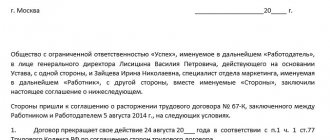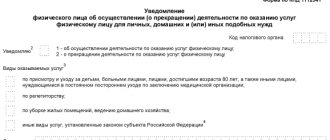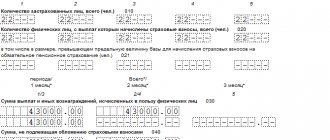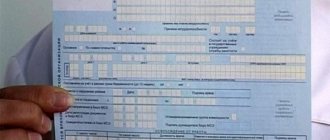Officially working citizens have the right to various labor benefits according to legal requirements. These include annual leave and the possibility of obtaining a sick leave certificate. Based on this document, a temporary disability benefit is assigned, the amount of which depends on the duration of absence from work and the average amount of earnings.
Since the employer pays contributions to state funds and taxes from the salaries of his hired specialists, the question arises whether these payments are transferred from sick leave benefits.
Are sick leave insurance premiums covered by the employer?
According to Art. 183 of the Labor Code, all citizens who are sick and issue a certificate of incapacity for work receive benefits for all days of absence from work. According to the general rules, this payment is not subject to insurance premiums, which is confirmed by the provisions of Art. 422 NK. Therefore, hospital payments do not transfer funds to social, pension or health insurance.
Reference! Such rules apply not only to funds paid by employers, but also to money transferred from the Social Insurance Fund.
The benefit is assigned exclusively to persons who are officially employed citizens, therefore, for them, the employer makes monthly contributions to the Social Insurance Fund. The current rate is 2.9% of earnings.
Therefore, these funds are withdrawn from a citizen’s salary so that in the future, when going on sick leave, the person can receive the optimal amount. The first three days are paid for by the employer, after which Social Insurance Fund funds are used. The benefit received on sick leave is not considered a salary, but is represented by a social payment on which insurance contributions are not charged.
Deadlines for submitting reports to the Pension Fund and the Social Insurance Fund and forms of reporting documents in 2020
Insurance premiums are calculated monthly for each employee on the last day of the month, based on the base for calculating insurance premiums. And paid no later than the 15th day of the next calendar month. That is, insurance premiums for February must be paid no later than March 15. If the 15th falls on a weekend, then insurance premiums are paid on the next working day after the weekend. For example, insurance premiums for March must be paid before April 15, but since April 15 is a non-working day, payment is postponed to April 16.
Insurance premiums are calculated based on the rate and base for calculating insurance premiums. The base for calculating insurance premiums is defined as the amount of payments and other remunerations accrued separately in relation to each individual from the beginning of the year on an accrual basis (Article 421 of the Tax Code of the Russian Federation).
The 2020 rates and maximum base for each type of contribution are set as follows (see table). How the base of insurance premiums changed (graph)
| Base for calculating insurance premiums | Pension insurance | Social insurance | Health insurance | |
| Base limit | 1 150 000 | 865 000 | no max size | |
| Estimated salary = Base/12 months | 95 833 | 72 083 | no max size | |
| Bid | 22,00% | 2,90% | 1,80% | 5,1% |
| Contribution amount =Base*Rate | 253 000 | 25 085 | 15 570 | |
| Rate if the base is exceeded | 10,00% | 0,00% | 0,00% | 5,1% |
The organization LLC "Chocolate" (general taxation system, type of activity - sale of confectionery products) pays wages to employees, we will calculate the amount of insurance premiums for December.
Option 1 – the base for calculating insurance premiums did not exceed the established limit, the salary was 20,000 rubles. Compulsory medical insurance = 20,000 rubles * 22% = 4,400 rubles Compulsory medical insurance = 20,000 rubles * 5.1% = 1,020 rubles VNIM = 20,000 rubles * 2.9% = 580 rubles Traumatism = 20,000 rubles * 0.2% = 40 rubles. The Social Insurance Fund may set a different coefficient; for example, we take 0.2%.
It depends on your main type of activity. You can find out which coefficient applies to your organization either from the “Notice on the amount of insurance contributions for compulsory social insurance against industrial accidents and occupational diseases” or directly from the social insurance fund.
Option 2 - the base for calculating insurance premiums exceeded the established limit for compulsory health insurance and VNIM, wages amounted to 200,000 rubles. In this case, insurance premiums in case of temporary disability and in connection with maternity are not accrued or paid, contributions for compulsory pension insurance are paid at the rate of 10%. OPS = 200,000 rubles * 10% = 20,000 rubles. Compulsory medical insurance = 200,000 rubles * 5 .1% = 10,200 rub. Injuries = 200,000 rub. * 0.2% = 400 rub.
The correctness and timeliness of payment of contributions is carried out through desk and on-site inspections. Since 2020, control over the payment of insurance premiums is carried out by the tax authorities, with the exception of contributions for injuries, these contributions are controlled by the Social Insurance Fund. We talked about this in detail in the article “Insurance Premium Reform.”
The Social Insurance Fund also retains:
- desk audits for reimbursement of social insurance funds at the request of the employer;
- Conducting on-site audits together with tax inspectors;
- consideration of complaints based on inspection reports.
Tax authorities monitor the correctness and timeliness of payment of insurance premiums using:
- desk audit of calculations of insurance premiums;
- reconciliation of accrued and paid amounts of insurance premiums;
- conducting on-site inspections, together with the Social Insurance Fund.
The organization Karat LLC (general taxation system, type of activity - wholesale trade in automobile parts) received a decision to conduct an on-site inspection, the subject of which is the correctness of calculation and timely payment of insurance premiums, as well as the legality of the expenses incurred by the policyholder for the payment of insurance coverage for 2014-2017 year.
The following documents were required for the verification:
- labor and civil contracts;
- employment orders;
- work books;
- time sheets;
- payroll, payslips for wages;
- personal cards of employees;
- certificates of incapacity for work;
- application and order for maternity leave, calculation of the amount of benefits;
- documents confirming payment of monthly maternity benefits (copy of birth certificate, application for leave, order, calculation of the amount of benefits, certificate from the father’s place of work stating that he does not receive benefits);
- orders for financial assistance and documents confirming the basis for its payment.
Also, the tax office and the Social Insurance Fund may request other documents related to the audit being carried out. On the day the inspection was completed, a certificate of the inspection was signed.
In case of non-payment of insurance premiums, the employer bears tax, administrative and criminal liability.
They are brought to tax liability for non-payment, incomplete payment of contributions as a result of understating the base for calculating insurance premiums, and other illegal actions. This type of liability is the most common type of liability for non-payment of insurance premiums. And, as a rule, it entails simultaneously the collection of arrears (the amount of unpaid tax) from the employer and the accrual of penalties for each day of delay in payment, and also, at the same time, it is possible to impose a fine in the amount of 20% of the amount of unpaid insurance premiums, and if intentional non-payment - 40% of this amount.
https://www.youtube.com/watch?v=ytadvertiseru
We invite you to familiarize yourself with the temporary residence permit and work permit » Federal Migration Service of Russia
However, this penalty can be avoided. The Ministry of Finance clarifies the imposition of a fine for non-payment of insurance premiums in Letter No. 03-02-07/1/31912 dated May 24, 2017: “The inaction of the taxpayer, expressed solely in the failure to transfer to the budget the amount of tax specified in the tax return, does not constitute an offense, established by Article 122 of the Tax Code. In this case, penalties will be collected from the taxpayer.”
Thus, if you did not pay insurance premiums on time, but correctly reflected the accruals and submitted the calculation on time, no fine is imposed. You will only need to pay the arrears and accrued penalties. You can also avoid a fine if you incorrectly reflected the accruals, which led to an understatement of the tax base.
The organization LLC "Ikra" (general taxation system, type of activity - wholesale trade in fish, seafood and canned fish) paid insurance premiums for March 2020 in the amount of 10,000 rubles. 05/17/2018 (instead of 04/16/2018), thereby delaying payment by 30 days. The tax office sent a demand for payment of arrears in the amount of debt - 10,000 rubles. and a penalty.
In this case, the penalties will be equal to: 10,000 rubles. x 7.25% (refinancing rate in effect during the period of delay) x 1/300 x 30 days. = 72.50 rub. The employer incurred tax liability for non-payment of insurance premiums in the form of penalties. Arrears and penalties have different BCCs, so they must be paid using different payment documents.
Criminal liability is borne by employers who, as in the case of tax liability, did not pay (did not pay in full) insurance premiums, did not submit a calculation, or included knowingly false information in it, which entailed a distortion of the tax base on a large or especially large scale.
This type of responsibility is quite young. The prospects for introducing criminal liability for non-payment of insurance premiums have been considered since 2013, however, the article defining this type of liability was introduced by Federal Law No. 250 - FZ only on July 29, 2020.
Criminal liability for individuals for insurance premiums (Article 198 of the Criminal Code of the Russian Federation):
- imposition of a fine from 100 to 300 thousand rubles or in the amount of wages for a period of up to 2 years;
- compulsory work for up to one year;
- arrest up to 6 months;
- imprisonment for up to one year.
If this act is committed on an especially large scale, then the individual is punished:
- a fine of 200 to 500 thousand rubles. or in the amount of wages for a period of up to 3 years;
- compulsory work for up to 3 years;
- imprisonment for up to 3 years.
Insurance premiums in 2020 include maternity and sickness premiums, medical premiums, pension contributions and personal injury contributions. Their total rate is 30% plus an accident insurance premium rate, which depends on the hazard of the operation.
Contributions to compulsory pension insurance: if the amount of payments to an individual employee does not exceed 1,150,000 rubles, then the rate is 22%; if the amount of payments to an individual employee exceeds RUB 1,150,000, then the rate is 10% on payments above the base.
Contributions for compulsory health insurance: rate 5.1%.
Contributions for insurance in case of temporary disability and maternity: if the amount of payments to an individual employee did not exceed 865,000 rubles, then the rate is 2.9%; if it exceeds 865,000 rubles. — 0%, that is, there are no payments over the limit.
- During the billing period, based on the results of each calendar month, payers calculate and pay insurance premiums based on the base for calculating insurance premiums from the beginning of the billing period to the end of the corresponding calendar month and the tariffs of insurance premiums minus the amounts of insurance premiums calculated from the beginning of the billing period to the previous calendar month. month inclusive.
Insurance premiums for the billing month = The basis for calculating contributions from the beginning of the billing period to the end of the calendar month × Insurance premium rate – Amounts of contributions calculated from the beginning of the billing period to the previous month inclusive - The amount of insurance contributions for compulsory social insurance (OSI) is reduced by the amount of expenses incurred by them for the payment of insurance coverage for the specified type of OSS in accordance with Russian legislation.
- The amount of insurance premiums calculated for payment for a calendar month must be paid no later than the 15th day of the next calendar month.
- Payers are required to keep records of the amounts of accrued payments and other remunerations, the amounts of insurance premiums related to them, in relation to each individual in whose favor the payments were made.
- The amount of insurance premiums to be transferred is calculated in rubles and kopecks.
- The amount of insurance contributions is calculated and paid by the payers of insurance contributions specified in subparagraph 1 of paragraph 1 of Article 419 of the Tax Code, separately in relation to insurance contributions for compulsory pension insurance, insurance contributions for compulsory social insurance in case of temporary disability and in connection with maternity, insurance contributions for compulsory health insurance.
Since 2020, the Federal Tax Service of Russia has been given powers to administer insurance premiums. Wherein:
- The Pension Fund of the Russian Federation is authorized to maintain personalized records of insured persons.
- FSS - pays benefits and administers injury reporting.
Reporting to the Pension Fund in 2020
Policyholders are required to provide information on the insurance experience of the insured persons for 2020 no later than March 1, 2020.
Most territorial bodies of the Pension Fund of the Russian Federation recommend that policyholders submit information in the form SZV-STAZH via telecommunication channels with an electronic signature, regardless of the number of employees.
Reporting to the Social Insurance Fund
The FSS provides information on compulsory social insurance against accidents at work and occupational diseases (the form and format is prepared by the FSS).
Reporting to the Compulsory Medical Insurance Fund
Separate categories of policyholders report (using special forms).
When are insurance premiums transferred from benefits?
Contributions are levied on temporary disability benefits if the benefit amount is above the established maximum. Under such conditions, for the first three days the employer is not only obliged to pay sick leave funds, but also pay a certain amount to the Social Insurance Fund. The current maximum value is 865 thousand rubles.
For example, an accountant receives a salary of 55 thousand rubles. per month. For 2 years of work, the average salary is 1 million 320 thousand rubles.
The calculation is carried out in the following steps:
- average earnings for 3 days is: 1320000/731*3=5417 rubles;
- based on the maximum payment, average earnings should not exceed 6894 rubles;
- therefore, insurance payments are transferred from the difference between these indicators: 6894-5417 = 1477 rubles.
If a hired specialist is a member of a trade union organization, then he is obliged to make monthly appropriate payments. But if a person receives sick leave benefits, then he does not have to worry about reducing this amount.
Trade union dues are levied exclusively on income, and benefits are represented by social payments, so funds are not deducted from them to the Pension Fund or Social Insurance Fund. But on benefits assigned in connection with temporary disability, you have to pay income tax, amounting to 13% of the payment. This fee is the only payment from social benefits, which is of an average size.
Attention! If sick leave is issued for pregnancy and childbirth, then not only insurance payments, but also personal income tax are not collected from them.
Insurance premiums are charged in the following situations:
- Calculation of benefits in the amount of 100% for an employee who does not have the required length of service. Such an initiative on the part of the employer acts as an accrual of additional income. Therefore, all required government payments are collected from the excess. For example, if a citizen’s work experience is less than 5 years, then the benefit amount is 60% of earnings. But the head of the company can, on his own initiative, increase the payment to 100%. But if you exceed the amount, you have to pay insurance premiums equal to 2.9%. From the 4th day, funds are transferred from the Social Insurance Fund. Typically, such a decision to increase benefits is made by the employer for valuable employees who have little experience but bring high profits to the company. The state does not provide for additional payments, therefore, for such a decision, company managers are required to pay insurance premiums.
- The Social Insurance Fund denies the employee benefits. This decision often arises due to illiterate documentation on the part of the employer. Sometimes there are problems coordinating payments with government agency representatives. The heads of organizations that care about the health of their hired specialists decide to assign them a payment at their own expense. But such transfers do not act as social benefits and are therefore recognized as income. They have to contribute funds to various state funds and the Federal Tax Service.
An employer obliged to transfer insurance premiums from sick pay must take into account the deadlines established by law, otherwise the director of the company will be held administratively liable. Therefore, money is paid before the 15th of the next month. At the same time, the payment order is retained, which serves as evidence of the fulfillment of obligations by the employer.
Insurance premiums for temporary disability: tariffs, calculation procedure
Within six months after the end of the sick leave period, the employee must submit the document to the organization for processing. The accountant accrues benefits according to this document. This benefit must be paid within ten days from the date of contacting the accounting department.
Before transferring funds to the authorities, it is important for the accountant to correctly calculate the contributions. Tax payments are made to provide the employee with benefits in the future, for example, a pension or benefits for illness, maternity and in cases of injury.
26 Jun 2020 glavurist 374
Share this post
- Related Posts
- Check whether a car has been seized using its license plate number
- What work is included in the overhaul of the façade of an apartment building?
- Which court should I file an application to reduce the amount of alimony?
- The procedure for obtaining a driver's license has changed in Russia
Will the insurance payment change when benefits are transferred?
Company managers save if the payment amount does not exceed the established limit. If the amount exceeds this figure, then you will have to transfer insurance premiums from the excess.
According to Art. 430 of the Tax Code of the Social Insurance Fund compensates the heads of enterprises for the amounts spent on transferring money to employees on sick leave.
But there are exceptions in which it is impossible to reduce insurance transfers by the employer.
These include situations:
- a certificate of incapacity for work is issued on the basis of an injury received by a citizen during the performance of work duties;
- the benefit is paid on the basis of an illness acquired while working in dangerous or harmful conditions;
- the company operates using OSNO, and the employee works in two directions, and in one such direction it is required to pay tax according to UTII.
Therefore, when receiving compensation, the chosen tax regime and the reasons for the employee’s illness are taken into account.
Is sick leave subject to personal income tax in 2019?
Example: Employee of Vega LLC Alekseeva N.A. I was treated in the hospital for 10 days. Based on the certificate of incapacity for work, the accountant calculated the patient’s benefit in the amount of 12,780 rubles. Of these, three days were paid for at the expense of the organization (1278 * 3 = 3834 rubles), and another 7 days were paid for at the expense of the Social Insurance Fund (1278 * 7 = 8946 rubles). Considering that the entire amount was paid by the company along with the salary, personal income tax is withheld by the organization as a tax agent. Let's calculate the income from benefits: 12780 * 13% = 1661.4 rubles. Alekseev will receive 12780 – 1661.4 = 11118.6 rubles.
State benefits paid to individuals are generally not subject to income tax, but an exception is made for benefits for temporary disability and care for a sick child (Article 217 (1) of the Tax Code of the Russian Federation). In other words, personal income tax from sick leave in 2020 must be withheld and transferred to the budget .
Imposition of insurance premiums on maternity benefits
If an employee becomes pregnant, then before the birth of the baby she has the right to go on maternity leave, receiving sick leave payments. Insurance premiums and personal income tax are not charged from this amount. This is provided for by the provisions of Art. 217 NK.
No other taxes or contributions are charged on the B&R benefit. Therefore, if for some reason the employer takes extraneous funds from the payment, the employee can contact the labor inspectorate to bring the violator to justice.
What taxes and contributions are paid on sick leave in 2020?
According to current legislation, income tax must be withheld not only from wages, but also from sickness benefits. Since the employee is a resident, his income is taxed at a rate of 13%. It is known that when determining the tax base, income tax deductions must be taken into account. The standard tax deduction for employee income for April is not applied due to the excess of 25,000 rubles established by law. The child deduction also does not apply due to the absence of children.
The maximum amount of sick leave paid from the social insurance fund is limited and is established for a year by legislative acts. Often the average salary of the insured person exceeds this limit. The employer can pay for sick leave within the limits established by law, taking into account the employee’s length of insurance, or can make an additional payment up to the amount of his average earnings. Is it necessary to subject the unified social tax to the amounts of additional payments?
Common Mistakes
If the head of a company or accountant makes mistakes when filling out a sick leave certificate, this leads to an incorrect calculation of the payment. They arise due to various factors, for example, an accountant may make an arithmetic error, and software failures often occur.
If such errors are detected, recalculation must be carried out. This leads to underpayment or overpayment. If the employee did not receive a certain amount, then he is paid the due funds. In this case, the amount is divided into two parts, since one is appointed by the employer, and the second is issued by representatives of the Social Insurance Fund. After recalculation, the money is paid on the day you receive your salary.
Important! Attention! company, so he additionally transfers compensation to the employee for each day of delay.
If it turns out that the employee received more funds than he was entitled to, he will have to return the excess. But if the error occurred due to the fault of the employer, then the citizen may refuse to return the money. If he agrees with the manager’s demand, then he draws up a written permission to withhold a specific amount from the salary.
Conditions for payment of temporary disability benefits
In accordance with Art. 6 of Federal Law No. 255-FZ of December 29, 2006, in order to pay benefits for temporary disability, a number of conditions must be met regarding the maximum permissible period of disability when assigning payments:
| Category of recipients of temporary disability benefits | Conditions for payment of benefits |
| An employee on sick leave due to illness or injury | Payment of benefits is carried out for the entire period of incapacity until the day of restoration of working capacity or determination of disability. |
| An employee undergoing rehabilitation after inpatient treatment in sanatorium and resort organizations of the Russian Federation | The benefit is paid for no more than 24 days. |
| An employee recognized by law as disabled | Receipt of benefits for no more than 4 consecutive months or 5 months during a calendar year |
| An employee recognized as disabled and sick with tuberculosis | The benefit is paid until the day of restoration of working capacity or until the disability group due to tuberculosis is revised |
| An employee who has entered into a fixed-term employment contract (for a period of up to 6 months) | Payment of benefits for no more than 75 calendar days under this agreement |
| A worker caring for a sick child under 7 years of age | Payment of benefits is carried out: · for the entire period of the child’s illness, but not more than 60 days a year; · in the case of a child receiving a diagnosis specified in the list of diseases in Order No. 84n of the Ministry of Health and Social Development of the Russian Federation dated February 20, 2008, benefits are paid for the entire period of illness, but not more than 90 calendar days a year. |
| A worker caring for a sick child aged 7 to 15 years | Payment of benefits for no more than 15 days for each case of illness and no more than 45 calendar days per year. |
| An employee caring for a sick disabled child under 18 years of age | The entire period of the child’s illness, but no more than 120 days a year |
| A worker caring for a sick HIV-infected child under 18 years of age | The entire period of hospital treatment of the child |
| An employee caring for a sick child under 18 years of age in case of an illness associated with a post-vaccination complication or cancer | The entire period of treatment of the child |
| A worker caring for a sick family member during outpatient treatment | No more than 7 calendar days for each case of illness and no more than 30 days per year |
| Employee subject to quarantine | The entire quarantine period |
| An employee who is with a child under 7 years of age, attending a preschool educational organization, or who is with an incapacitated family member subject to quarantine | The entire quarantine period |
| An employee undergoing prosthetics in a specialized hospital | The entire period of incapacity for work, including travel in both directions |
| ★ Best-selling book “Accounting from scratch” for dummies (understand how to do accounting in 72 hours) > 8,000 books purchased |









